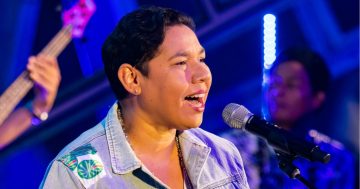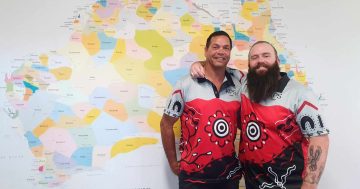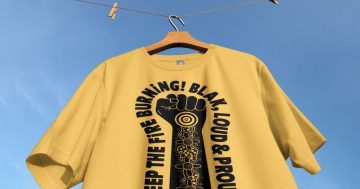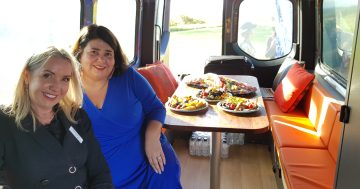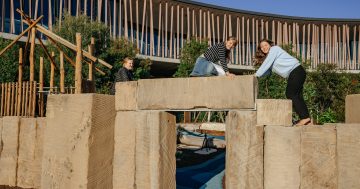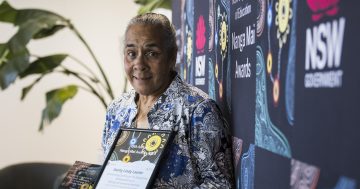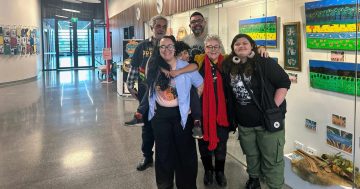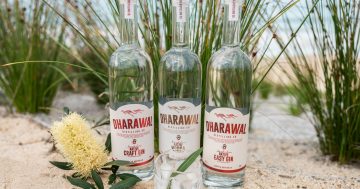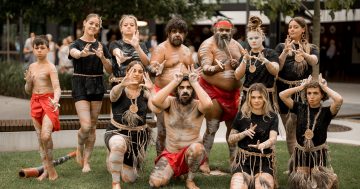
Senior lecturer, Dunghutti and Birpai woman Ash Markstone said Aboriginal Languages Week offered a unique way for everyone to connect with culture and Country. Photo: Ash Markstone.
Are you sick of being bullied by the Duolingo owl? Have you spent hours learning Portuguese only to find you don’t actually know anyone who speaks it?
Why not try learning a local Aboriginal language instead?
This is the second-ever national Aboriginal Languages week, from 20-27 October and learning language can benefit everyone, University of Wollongong lecturer and Dunghutti and Birpai woman, Ash Markstone, said.
“Aboriginal Languages are more than just communication,” she said.
“They embody worldviews, ecological knowledge, spiritual connections and history.
“Language is a beautiful way to connect more with the Country you’re living on. When you speak those words you’re saying things that have been said on this country for tens of thousands of years.
“It’s really powerful and unique and should be celebrated. This week is a great opportunity for non-Indigenous people to support language revitalisation work or learn a language themselves.”
Ash is learning Gathang language, from Birpai Country, and said the experience helped her to connect with the environment around her in a new way.
“I started with the names of animals, so in the morning when I see the magpies – ngaambul – in the evening I see the bats – gulan,” she said.
“When you see them every day it sticks, and you can build your vocabulary from there.”
There are hundreds of Aboriginal languages and dialects across Australia, with some in more active use than others.
Many communities are working hard to revitalise languages that were pushed to the brink of extinction by colonisers.
Reclaiming those languages is an important part of strengthening Aboriginal cultures and identities.
“The revitalisation work happening is really important for Indigenous people across the country, and it’s been happening since the first days of invasion,” Ash said.
“Government policies prevented Indigenous people from using our own language, speaking it and teaching it.
“Even while that was happening and there was a risk of punishment, people still retained language and passed it on in secret.
“A lot of Indigenous knowledge is held in songs that are shared orally, so it’s more than just the words.
“It’s family history, responsibilities and privilege to look after and care for Country, and the position you have in that holistic space.
“Learning those songs and passing them on is part of appreciating that world view and connecting with your identity in that way.”
Now it’s no longer forbidden, a number of groups have sprung up to rediscover and share languages with Aboriginal and non-Aboriginal people, in spaces from land councils to preschools.
Resources to learn are available online and in person – and there are also hopes that long-lost language treasure troves could be unearthed.
“There was a period in Australia’s history where a lot of audio recordings and notes were taken,” Ash said.
“They weren’t given to community and were often put in storage. There’s a wealth of knowledge sitting around waiting to be discovered.
“If you work in museums, art galleries or libraries, schools, you might be able to dig up old records and return them to the community they belong to, and even work with that community to incorporate more of the local language into your workplace.
“Language is a living thing, and our languages are evolving and changing. It’s entirely within the realm of possibility that Australia as a country will embrace that linguistic diversity, and rich heritage filled with hundreds of different cultures and languages, and that will become part of everyone’s Australian experience.”









